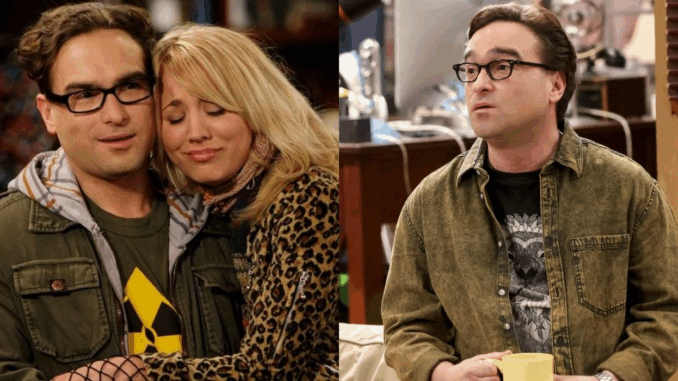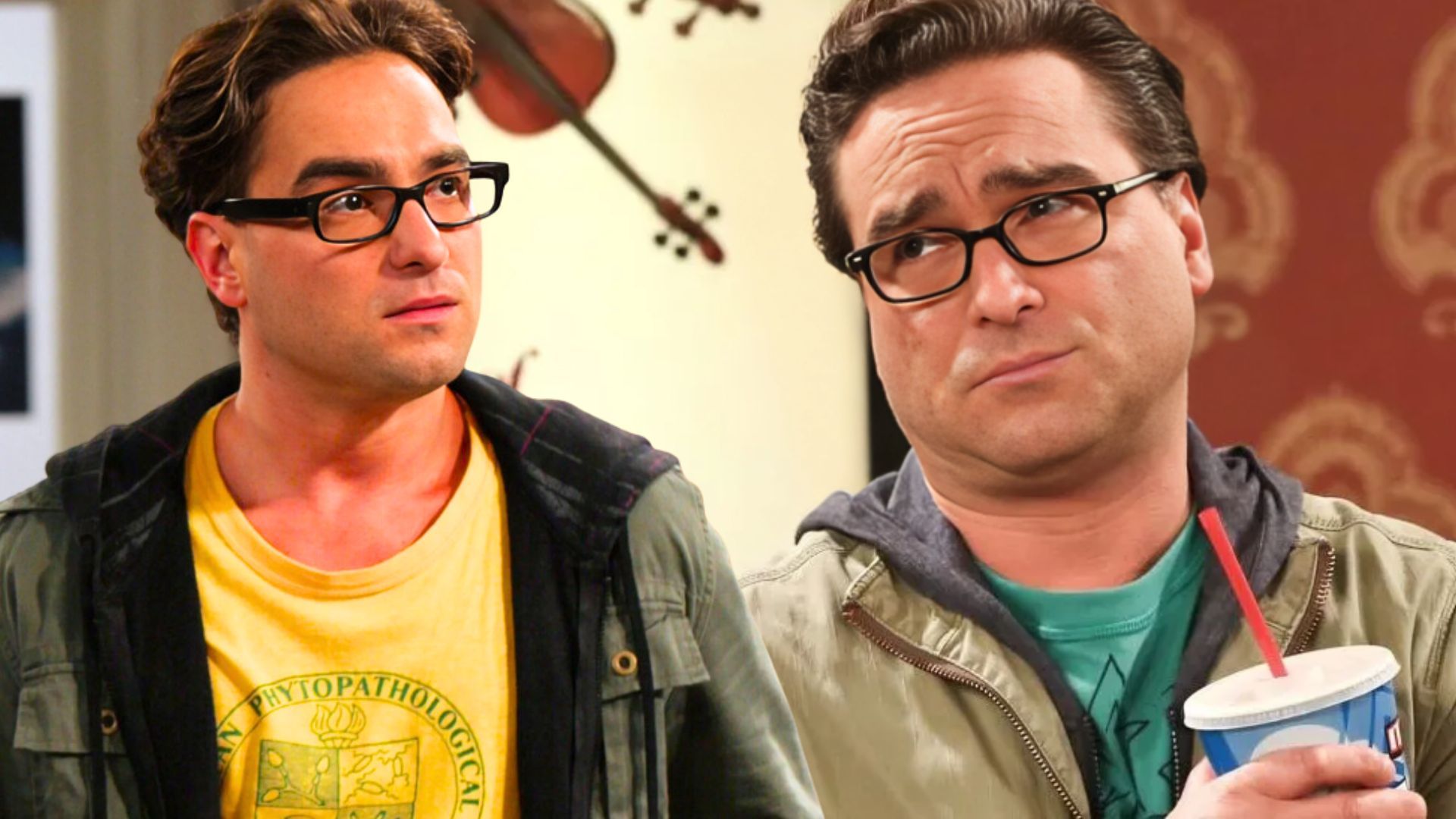
The Unsung Hero: Leonard Hofstadter’s Quiet Strength
In the world of The Big Bang Theory, Leonard Hofstadter often finds himself in the shadow of his more eccentric and overtly intellectual friends, Sheldon and Howard. Yet, over the course of the show, Leonard proves time and again that he is the heart of the group—a steady presence that anchors the chaos around him. While Sheldon receives the lion’s share of attention, Leonard’s role as the “reluctant hero” cannot be overlooked. Much like the glasses that define his look, Leonard’s true character can be seen more clearly as the series unfolds—quiet, steady, compassionate, and profoundly human.
Leonard’s glasses, which have become almost as iconic as his character, represent more than just a physical accessory. They are a symbol of how Leonard sees the world—not through the same lens of arrogance or social detachment as Sheldon, but through one of empathy, vulnerability, and self-awareness. Over the years, these glasses become a metaphor for Leonard’s emotional and intellectual journey—one of personal growth, acceptance, and ultimately, self-respect.
The Glasses: A Window Into Leonard’s Insecurities
When we first meet Leonard in Season 1, he is immediately characterized by his intelligence, his awkwardness, and his underlying insecurity. The glasses he wears aren’t just for seeing—they reflect how Leonard sees himself: someone who feels small in a world dominated by stronger personalities. Leonard’s early portrayal as a socially awkward physicist struggling with self-esteem issues makes him relatable to many viewers, especially those who feel like they’re not as “important” as their more outspoken peers.
Throughout the first seasons, Leonard’s glasses symbolize his desire for acceptance. While his friends—particularly Sheldon—often belittle him, Leonard quietly yearns for validation, whether it’s from his colleagues, his mother, or, most significantly, from Penny. His glasses become a tool through which he can hide, protect, and express his vulnerability. They give him a sense of control in a world that often feels out of his hands.
The Reluctant Hero: Leonard’s Growth Through Adversity
Leonard’s true evolution comes when he begins to embrace his role as the “reluctant hero.” While Sheldon may be the one who’s often called upon to save the day, Leonard’s emotional intelligence and his ability to act as a mediator make him the glue that holds the group together. His quiet heroism lies in his ability to see beyond the surface—to understand the emotional needs of his friends, even when they themselves don’t recognize them.
One of the most notable moments in Leonard’s development occurs when he decides to take responsibility for his actions in his relationships. His emotional maturity shines through during his tumultuous relationship with Penny, where Leonard learns to stand up for himself and demand the respect he deserves. The pivotal moment occurs when Leonard gets married to Penny in Season 9—a culmination of years of growth where he finally embraces the love and respect he had always hoped for.
In many ways, Leonard’s glasses mirror his journey. The more he learns to assert himself and embrace his worth, the less he needs to hide behind them. The glasses go from a crutch to a signature part of his personality, a symbol of someone who is finally seeing themselves for who they truly are.
Leonard’s Dynamic with Sheldon: A Study in Friendship and Tolerance
One of the most complex relationships in The Big Bang Theory is the dynamic between Leonard and Sheldon. Leonard, often cast as the straight man to Sheldon’s eccentricities, plays a crucial role in managing Sheldon’s more difficult behaviors. In a way, Leonard’s relationship with Sheldon teaches him patience, empathy, and tolerance. It also shows him the importance of setting boundaries—something Leonard struggles with but gradually learns over time.
Leonard’s relationship with Sheldon is a mix of rivalry and camaraderie. While Sheldon is often oblivious to Leonard’s feelings and needs, Leonard is consistently patient, gentle, and forgiving. This one-sided dynamic sometimes leaves Leonard feeling frustrated, but his glasses represent his ability to look past Sheldon’s quirks and understand the deeper motivations behind his behavior. Ultimately, Leonard’s acceptance of Sheldon’s idiosyncrasies makes him a better person and a better friend.
Leonard and Penny: A Relationship Built on Support and Growth

In the romantic realm, Leonard’s relationship with Penny is the emotional core of The Big Bang Theory. Despite Penny’s initial disinterest and Leonard’s self-doubt, their bond deepens as they navigate the ups and downs of love, career aspirations, and personal growth. Leonard’s glasses symbolize the way he perceives Penny—not just as the girl of his dreams, but as an equal partner with whom he can share his vulnerabilities and fears.
Leonard’s unwavering love and support for Penny, especially during her own moments of self-doubt, highlight his emotional maturity. Over time, their relationship becomes one of mutual growth. Penny, who once viewed Leonard as a socially awkward, “nice guy,” begins to see him as a strong, compassionate man who is worthy of her love and respect. Their partnership shows how both characters evolve in tandem, learning from one another and growing into better versions of themselves.
The Legacy of Leonard Hofstadter: More Than Just the Glasses
By the time The Big Bang Theory ends, Leonard’s character arc is one of quiet triumph. The glasses, which initially represented his insecurities, become a symbol of his strength and resilience. He may not have the loudest personality or the most outrageous quirks, but Leonard’s emotional intelligence, empathy, and ability to love unconditionally make him one of the most grounded characters in the series.
Leonard’s legacy is a reminder that sometimes the true heroes aren’t the ones who make the loudest noise or seek the spotlight, but those who quietly support, nurture, and help others. His journey is one of self-acceptance, of learning to see himself through a lens of self-worth and respect—a journey that many viewers can relate to.
Conclusion: The Power of Seeing Through Leonard’s Glasses
Leonard Hofstadter’s glasses may have started as a symbol of insecurity, but they ended up representing so much more: a character who saw the world through the eyes of empathy, who quietly became the hero of his own story. Leonard’s growth—from a socially awkward physicist to a confident, self-assured man—is a testament to the importance of emotional intelligence, patience, and the power of seeing oneself clearly.
By embracing his insecurities, Leonard found the strength to love himself and others, and his glasses became a reflection of the man he truly was—someone worthy of respect, love, and, most importantly, self-acceptance.